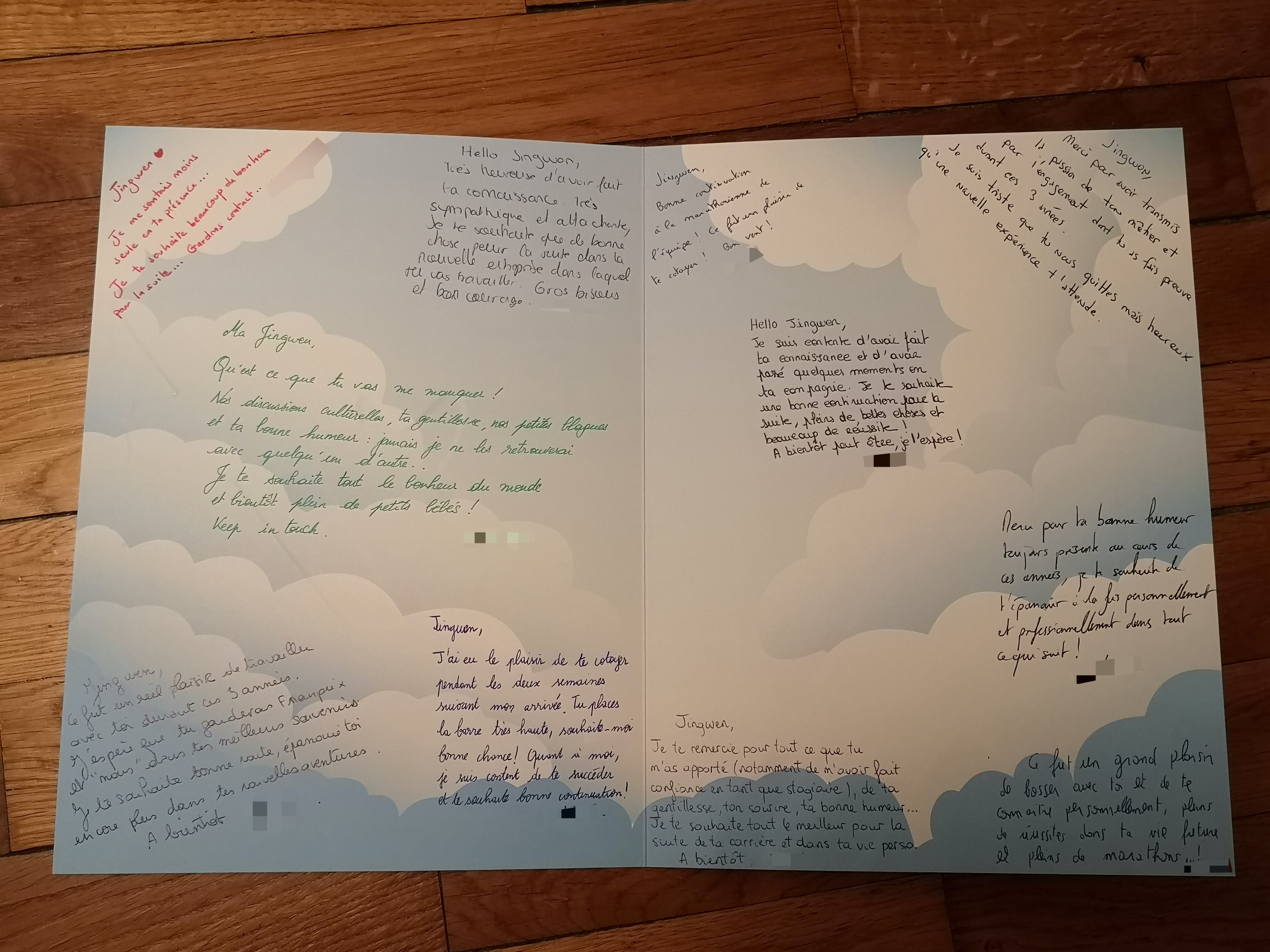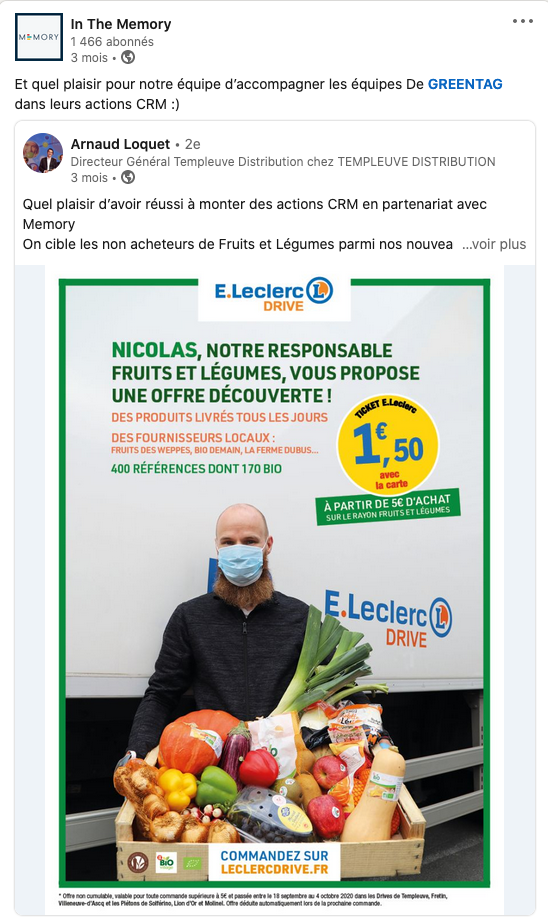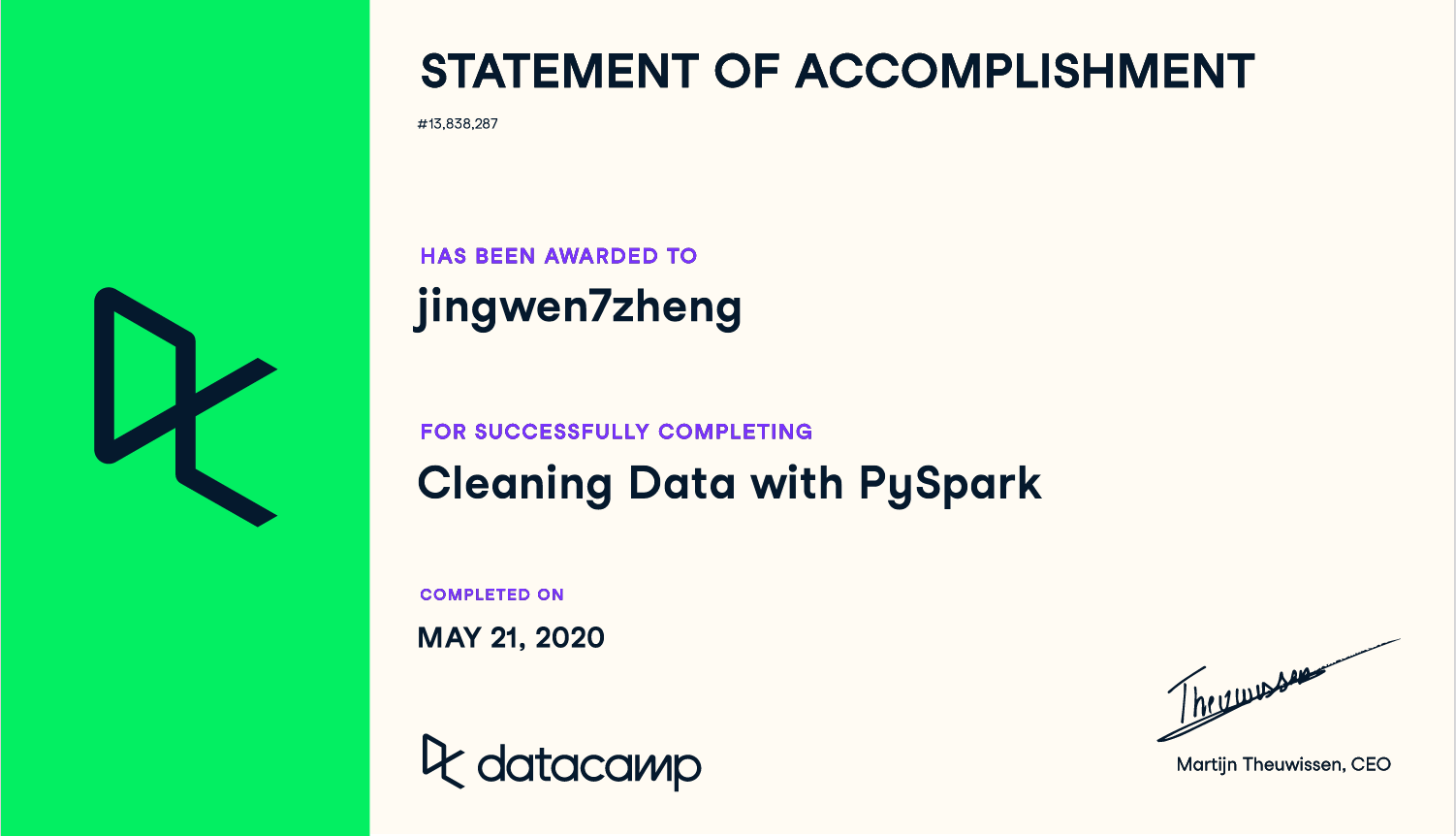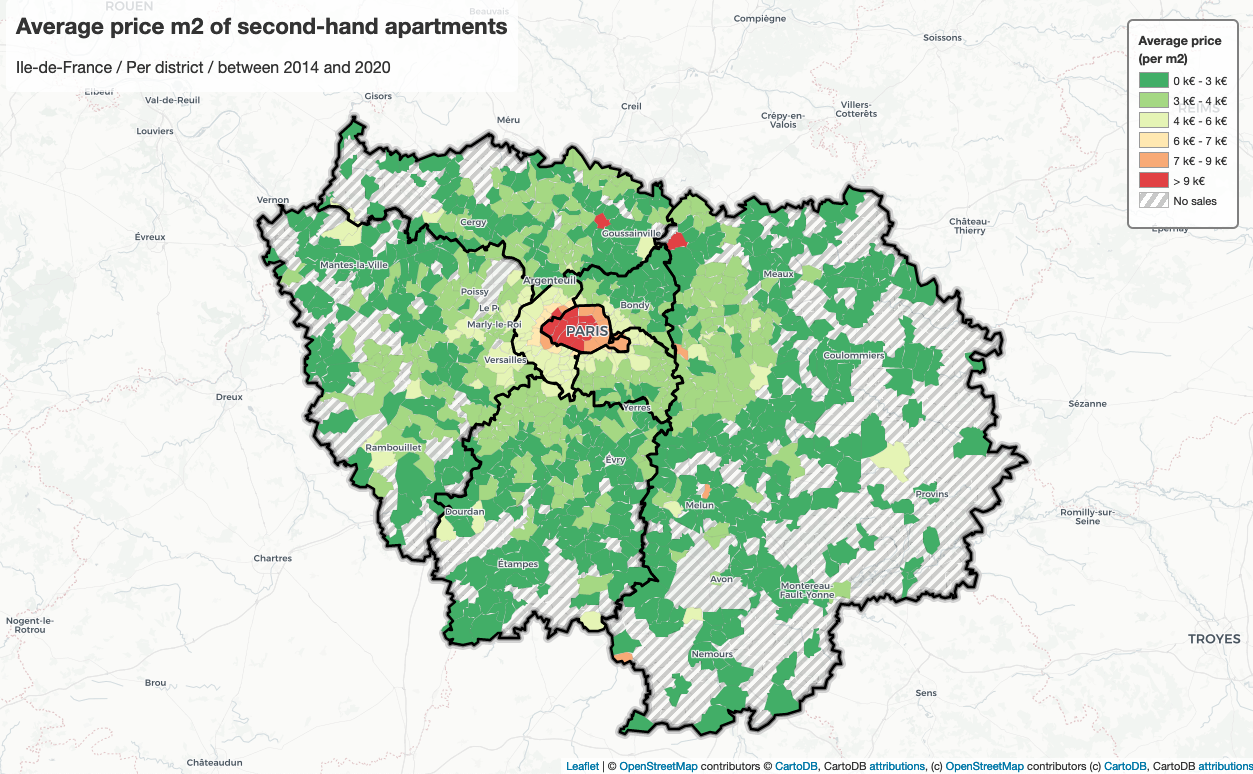The year 2020 is a year unlike any other for every one of us. This year, we changed our working approach progressively; this year, most of us had more time to accompany our family; this year, we paid more attention to hygiene.
This year I enhanced my knowledge of retailing, improved my python and analysis by applying different projects. In the following, I’ll talk about:
- Working in retailing
- Self-learning
- COVID-19 analysis
- Second-hand apartments transactions in Paris & Ile-de-France
- Blogs
Working in retailing
After 3.5 years’ journey at Franprix, I started my adventure at “In The Memory” since July of this year. I had a fruitful harvest by working at Franprix: I founded the Data Science Team with another colleague after setting up an infrastructure: Gitlab, e-mail reporting pipelines, and projects’ management tool; I entered the retailing world, saw its backstage, and understood how it worked by creating and maintaining 30+ reports for directors and different teams; learning and enhancing my skills in data engineering by automating ETL processes (SQL, python, GitLab) that allowed to make it easier to wrangle data and reduce time by as much as 50%; I also improved my analysis skill by applying descriptive & predictive models and visualising data with suitable graphs via python scripts to analyze products, clients’ preferences and predict products’ sales.

In The Memory is a retail-tech company that helps retail players to make the best use of the different internal and external data sources to meet their strategic and operational business challenges. Our products allow distributors and brands to accelerate their decision-making to attract more customers and make the best assortment, merchandising, pricing and promotional choices, in their various physical and online sales channels. We build tailored Augmented Intelligence solutions to meet clients’ priority challenges and serve their strategies by supporting their teams in change management, defining together the best KPIs to meet clients’ challenges, and adapting our solutions to the client’s needs, constraints and processes.
We have 3 teams: consultants, data scientists and developers. The colleagues of consultants team collects clients’ needs, transcribes the technical view points to discuss with the colleagues of data and dev team, to offer the solutions which satisfy the clients’ needs. For us data scientists, after discussing with our retailing experts, we define strategic indicators, develop and implement some algorithms with python and spark, then we’ll present the KPIs and data visualisation to the colleagues of the dev team, and to see if it’s reasonable and realizable for the platform.
The working atmosphere is amicably and dynamic, each week we have one meeting within the whole company, another for each team, which allow everyone to well know and follow all the projects (top transparency). Since mid-2020, we doubled the number of employees! During my 6-month working at In The Memory, I got a more global view of the retailing domain, enhanced my business thinking according to multiple projects, like CRM and new feature creation for our platform.

Self-learning
This year I enriched my skills of extracting data via Google API. For example, I learnt how to get geographic information by Google Geocoding API, understood how to get a YouTube video’s information with YouTube Data API, handled how to get places’ reviews on Google Maps by Place API and Google My Business API.
Before arriving at In The Memory, considering that I need to realise data
transformation with pyspark, I learnt how to manipulate data with it on
datacamp and applied that with docker.

Imagine that when we wrote a Python class to extract some business places’
reviews with Google Place API, how could we ensure that we will extract the
data correctly without sending requests to Google? In this case, I leart how to
use python module unittest to mock a requests.get and to test if we
will get the expectant result. Mocking objects can simulate the behavior of
complex, real objects and are therefore useful when a real object is impractical
or impossible to incorporate into a unit test.
COVID-19 analysis
As I mentioned at the beginning, our life is impacted by COVID-19. I did some analysis for different continents, countries and cities with different visualisations on multiple aspects: confirmed cases evolution, daily cumulative confirmed count for each country, confirmed cases per 1 million people, deaths rate, etc. You can find them all here.
Second-hand apartments transactions in Paris & Ile-de-France
Since the 17th century, Paris has been one of Europe’s major centers of finance, diplomacy, commerce, fashion, science, and the arts. According to the Economist Intelligence Unit Worldwide Cost of Living Survey in 2018, Paris was the second most expensive city in the world, after Singapore, and ahead of Zürich, Hong Kong, Oslo, and Geneva. Another source ranked Paris as the most expensive, on a par with Singapore and Hong Kong, in 2018. All these elements help to bring the increasing price of real estate in Paris. Thanks to the open data source, I went into them and found out the second-hand apartments transactions in Paris, Ile-de-France as well.

Blogs
This year I wrote 24 blogs (including this one), they talk about various topics: extracting data by Google APIs, data analysis, python application, unit test, geovisualisation. Moreover, the traffic of my blog increases by 233% concerning 2019. I’m pretty glad if my blogs can help you and solve the problems for you.


Don’t hesitate if you want to ask questions or write comments, it’s welcome!!
Happy New Year! Hope to see you in 2021!
Reference
- geralt, “New year 2020”, pixabay.com. [Online]. Available: https://pixabay.com/illustrations/new-year-s-day-new-year-s-eve-4691183/